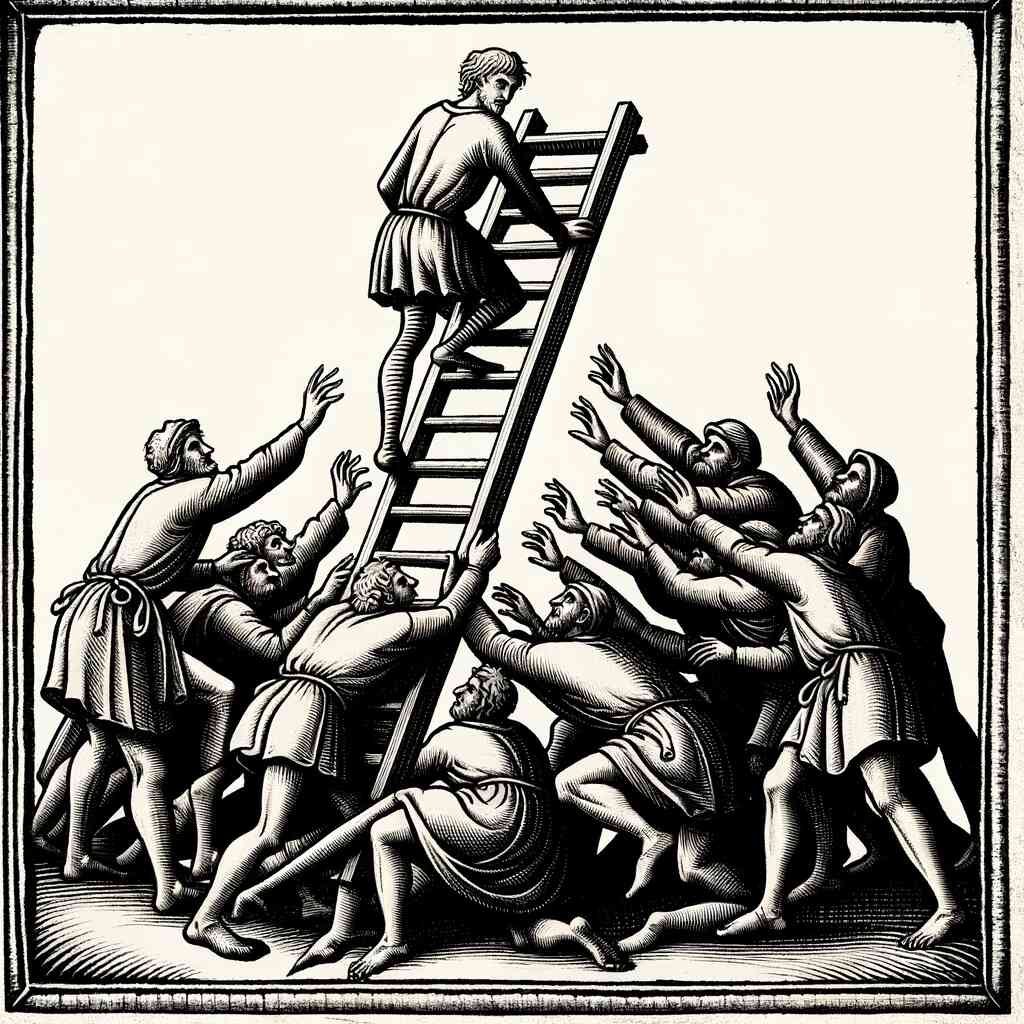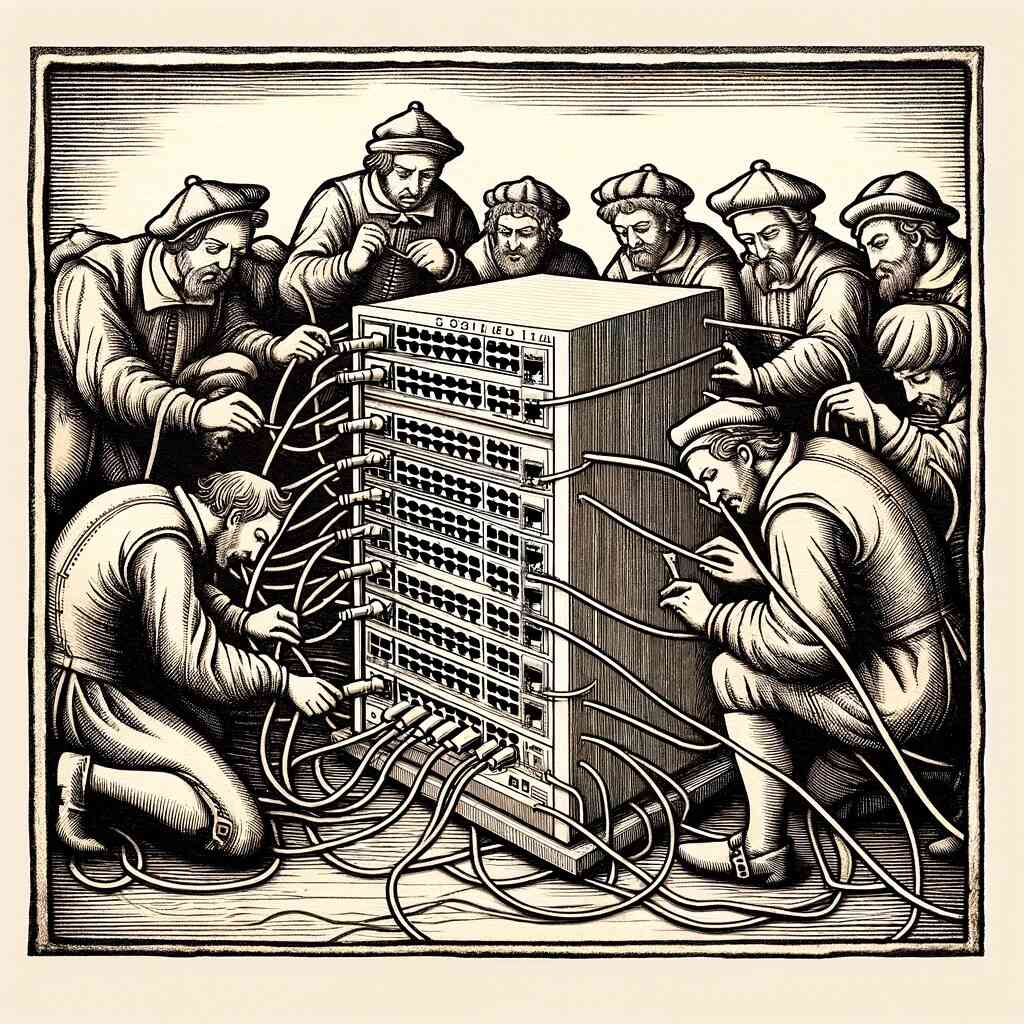How to Become a CEO
14 Dec 2023As a young man, I had a lot of ambition to climb the greasy pole, to get to the “top” of this heap we call a “career”, and as time went on I started doing little explorations of the career histories of people who made it to that apex corporate title, the “CEO”.

It is worth doing this because, by and large, our society is run by people who either have been CEOs or who have come very close. Pull lists of boards of both private and public institutions and you will see a lot of people who have ascended to the top of large institutions before moving into governance. These are the people who determine the direction of our society, by and large.
And how have they gotten there? Through a surprisingly small number of routes, that are all highly path dependent.
If you spend some time exploring the employment histories of corporate leaders, you’ll find really just a couple archetypes.
The Long-term Corporate Climber
By far the most common pattern is for a future CEO to find an entry- or mid-level position in a large organization, and then work at that one organization for 15 to 25 years, ascending the ranks.

Once they get to just below the CEO, they either leap to a CEO position at another firm, or finally ascend to the CEO position of their originating organization.
- Darren Woods, CEO of ExxonMobile, spent 25 years working his way to the top of Exxon.
- Ginny Rometty, former CEO of IBM, spent 25 years working her way to the top of IBM.
- Jim Farley, CEO of Ford, actually did his important climbing (from entry level to upper management) over 17 years at Lexus, then spent another 13 years at Ford completing the climb to CEO through a sequence of high level regional jobs.
- David Hutchens the CEO of our local gas utility, spent 26 years climbing the rungs of Tuscon Electric.
I was spurred to write about this topic today when I learned that EDB has a new CEO (what?!), Kevin Dallas, who (wait for it), spent 24 years climbing the greasy pole at Microsoft, before being tapped for his first CEO gig in 2020.
Speaking of Microsoft, even corporate leadership savant Satya Nadella started as an entry level engineer in Microsoft, taking the CEO slot in 2014 after 22 years of slogging upwards.
In the main, the way to become a CEO (of a large organization) is to get yourself a job in a large organization early in your career, so you can accumulate the experience and contacts necessary to be considered a viable candidate later in your career.
The path dependence is kind of obvious. If you spend your early career on something else, by the time you get into a large organization you will be starting too far down the heirarchy to reach the top before your career tapers off.
To many, the surprising thing about these career profiles is how rarely there are mid-career jumps between corporations. Probably this is because people under-estimate the power of social networks.
Your reputation for “getting things done”, the density of people who find you charming, the employees and hangers on who benefit from your rise in the organization, they are all highest in one place: the place you already work. Moving laterally in mid-career to a new organization instantly resets your accumulated social capital to zero.
The Founder or Early Hire
One exception to the rule is the founder of a company that grows to a scale sufficient to be considered comparable to existing institutions.

This is, as you can imagine, quite rare.
In the “wow that’s insane” founder category: Bill Gates, Steve Jobs, Mark Zuckerberg, Sara Blakely.
Or the “locally known but still huge” founder category: Ryan Holmes (Hootsuite), Chip Wilson (Lululemon), Stewart Butterfield (Slack, Flickr), James Pattison (Pattison Group), Dennis Washington (Seaspan).
In the tech space, there’s also a lot of early hires, who necessarily progressed quite quickly through the “ranks” as the company they had lucked into exploded in size.
- Erik Schmidt, who rode Sun Microsystems rocket to senior management before finding CEO roles at Novell and Google.
- Steve Balmer, who… do I need to even say?
- Sundar Pichai, who joined Google in 2004 and held on to become CEO as the founders burned out.
The Well Connected
This is an interesting third category, which is difficult to join, but is very much real – knowing people who will elevate you early on.
-
Like, former Treasury Secretary Tim Geithner had on the one hand, a kind of conventional “grind it out” career working his way up the ranks of the senior federal civil service. But on the other hand, the roles he was in, right from the start were quite high level. How did he manage that? He was recommended to his first job out of college at Kissinger Associates, by the Dean of his faculty at Johns Hopkins. From there he met lots of powerful people who would vouch for his brilliance, and away he went. Now, it surely helped that he was brilliant! But, the connections were necessary too.
-
I checked out the career history of Jamie Dimon, CEO of JP Morgan, expecting to find a long slog at a major financial institution, but it turns out Dimon got an early boost into leadership, through his connection to Sandy Weill, who recruited him to American Express. And how did Weill know Dimon? Dimon’s mother knew Weill and got Dimon hired for a summer job with him. Again, it surely helped that Dimon was sharp as a tack! But, without his mom…

In lots of cases, this category is fully subsumed in the first. Anyone who grinds up a corporate heirarchy will find boosters and mentors who will in turn help them get ahead. Often a senior leader gets a lot of help from a talented junior and they ascend the heirarchy in parallel. Being the “assistant to the President” might make you officially lower on the totem pole than the CFO, but unofficially and in terms of career advancement… that can be another story altogether.
Advice?
Despite my long-time desire to climb the greasy pole, I have never worked for an instution large enough to have any serious opportunities to climb, and have finally achieved a zen calm about career. By and large my career has been something that happened to me, not something I planned, and that colors my perceptions a lot.
First jobs lead to first connections, and first connections determine what paths open up as you move on to second and third jobs. Path dependence in career progression is huge. Probably the most important moment is early career, getting into an institution or industry that is poised for growth and change.

It’s possible to rise in an older, established institutions, but my impression is that it’s more of a knife fight. I don’t think the alternate universe Steve Balmer who started in sales at IBM would have risen to be a CEO.
Far and away the most important thing you can amass, at any career stage, is connections. Take every opportunity to meet new people, and find people and topics that stimulate your curiosity. If what you are doing is boring or unpleasant, it’s never going to matter what your title is, or how high up the pole you are.



